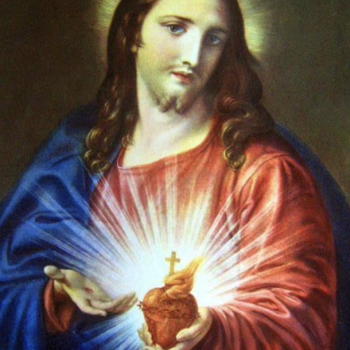Prospects for mission success never seemed better than in 1958. In the spring, French language editions of the Doctrine and Covenants and the Pearl of Great Price were published. Word spread throughout the mission that the nighttime of the French Mission was over. New hope and enthusiasm was matched by an upsurge in converts presaging the possibility of more than 200 baptisms within the year, twice the number than in any previous year since the organization of the mission.
An elder who proselytized door-to-door with Elder Tucker after his appointment as counselor recalls: "His door approach was firm and respectful. Lessons were simple, clear, forceful, and adapted to the special needs of each individual contact." This public performance could not help but gain the confidence of his fellow missionaries. In approaching them to gauge their susceptibility to his private beliefs, he worked clandestinely, not intending, it would appear, to cause defection from the Church but to lay the groundwork for what he perceived as needed Church reforms.
Much of Tucker's influence was definitely for the good. He was a firm advocate of the Word of Wisdom. He worked hard and his strong recommendation for spirituality in missionary work inspired many to greater exertion in their own callings. Juna Abbott, for example, had been an airline stewardess. As a sister missionary, she remained cosmopolitan, sophisticated, and excessively concerned with make-up and appearances. Strongly impressed with the teachings of the Tucker group, she changed dramatically, becoming simple, austere, and studious.
Tucker attracted various confederates, one of whom was J. Bruce Wakeham from Duarte, California, and a member of the same Pasadena Stake as Tucker. He and Wakeham not only seemed cast in the same mold, but Tucker effusively praised his cohort, on one occasion pointing to Wakeham and exclaiming, "Now, there is a prophet of God!"
A second adherent was Stephen Silver. Appointed as Tucker's companion after he became a counselor, he absorbed Tucker's teachings on a daily basis. According to one acquaintance, Tucker's teaching profoundly affected Silver's personality. Previously fun-loving, cheerful, and energetic, he became somber, pious, and reticent.
A third confederate, the ethereal and elusive Daniel Jordan, struck others as extreme in his attitudes and action. He refused to eat white bread or chocolate. He would pray in the open, looking straight up in the air. He kept a pencil and pad by his bedside to record his dreams, which he considered revelations. Rather than proselytize, he generally devoted himself to study. His abnormal behavior and aloofness at times frightened others.
Tucker gathered these three elders to the Paris mission center in March 1958. During the next several months, all four continuously traveled the mission publicly proclaiming the gospel but privately propounding their own special doctrine. They would team up with individual missionaries during the day and in the evening conduct study and testimony sessions. Usually, they would test a missionary's receptiveness by stating an apostate principle. What came next would depend upon how the elder reacted. If he was confused and quizzical, they might pursue the topic to bring him around. If he denounced their principle and appeared to be knowledgeable, they would drop the subject.
One prospective adherent was Ronald M. Jarvis. Arriving in the French Mission in late 1957, serious-minded and dedicated, he had come on his mission with a testimony of the gospel but, according to a post-mission interview, also determined that he would follow his testimony if it conflicted with the direction of Church authorities. He was displeased to find some missionaries shiftless and inattentive to their spiritual development. He was equally disgruntled with what he regarded as a lack of spiritual vitality among the local members. Critical of the mission as a whole, he was thus disposed to be greatly impressed by the energetic work of Tucker and his associates.
Elder Jarvis met Elder Shore, Tucker's Marseille companion, as Shore was leaving the mission field. Jarvis reflected in his journal, "Never have I met a man who more completely won my respect and confidence. My entire soul reached out for instruction and he imparted quite a bit to me concerning the wearing of the Priesthood garments and concerning the spiritual value of the Word of Wisdom." Jarvis was in Paris from January until August 1958, constantly exposed to Tucker and his adherents, and by that April he had become totally absorbed in the movement.
While Tucker taught the primacy of seeking the Spirit for guidance in conducting missionary work, he privately went out of bounds, encouraging the elders to discount the current Church leaders' teachings in favor of doctrines culled from sources such as the Journal of Discourses, a compilation of sermons by early Church authorities. He taught that some General Authorities lived polygamously in secret and that the Church proper had collectively apostatized from the principles on which it had been founded. He decried the unquestioning acceptance of tradition and urged immediate reformation. Jarvis commented in his journal: "The events of the next few years are going to try this church from the bottom to the top and I fear much persecution from the members of the church who are founded on tradition rather than real testimony."




